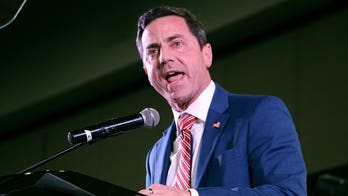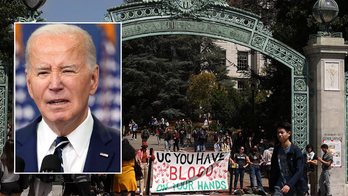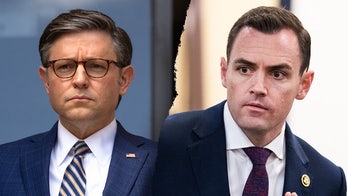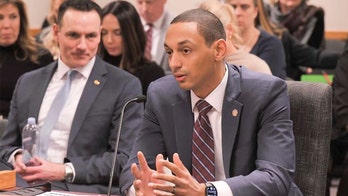Sarah Palin on Obama's oil market crackdown
President wants Congress to strengthen federal supervision
WASHINGTON – President Obama on Tuesday urged Congress to help strengthen federal supervision of international oil markets, amid pressure from U.S. voters to take action on rising gasoline prices.
The president wants Congress to increase penalties for market manipulation and empower regulators to increase the amount of money energy traders are required to put behind their transactions.
"Congress should do all of this right away," the president said Tuesday during a White House speech in the Rose Garden.
Obama said the plan would put "more cops on the street" to catch speculators who attempt to manipulate markets for their own profit. He also chastised Congress for recently voting against ending tax breaks to U.S. oil companies and said passing his proposal would help members redeem themselves.
Still, the president acknowledged such efforts "will not bring down gas prices overnight."
The plan is more likely to draw sharp election-year distinctions with Republicans than have an immediate effect on prices at the pump. The measures seek to boost spending for Wall Street enforcement at a time when congressional Republicans are seeking to limit the reach of federal financial regulations.
Obama was joined Tuesday by Attorney General Eric Holder in spelling out his $52 million proposal.
Republicans have been hammering Obama on his energy policies, recognizing the political cost of high gas prices on the president. Obama's plan would turn the tables on Republicans by taking aim at Wall Street's role in the oil price chain.
Many Democrats blame speculators for the high cost of gasoline. They would not go as far as to say that market manipulation is responsible for rising gas prices, but the officials said they wanted to curtail the ability of speculators to take unlawful advantage of oil price volatility.
At issue is the increasing role of investment in oil futures contracts by pension funds, mutual funds, hedge funds, exchange traded funds and other investors. Much of that money is betting that oil prices will rise. Analysts say it is possible that such speculation has somewhat inflated the price of oil.
At the same time, investors can also bet that prices will go down -- indeed, speculators have been credited for low natural gas prices. Studies of the effects of speculation on oil markets indicate that it probably increases volatility, but doesn't have a major effect on average prices.
Still, seeing a potential problem with speculators is not limited to Obama or Democrats or this election season. When gasoline hit $3 a gallon in 2006, George W. Bush launched an investigation, declaring Americans "don't want and will not accept ... manipulation of the market. And neither will I."
Last year, as prices rose, Obama and Holder announced the creation of a task force to look into fraud in the energy markets.





